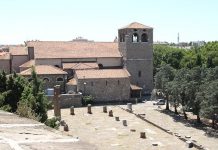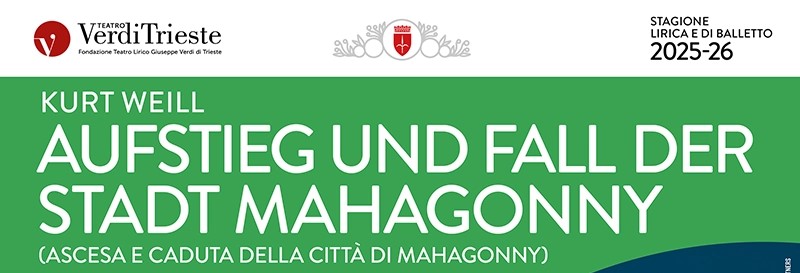by Nina Vaclavikova
Interviews: Giorgio Rossi, Trieste councilor for tourism; Lisa Marra, president of the association Accademia Veneta
The city of Trieste will host the inaugural edition of Trieste True Crime on November 7–8, 2025, a national event dedicated to exploring real-life crime stories through journalism, criminology, and academic research. The festival will take place at Sala Luttazzi in the Magazzino 26 of Porto Vecchio–Porto Vivo and at the Civic Theater Museum “Carlo Schmidl.”
Presented this week at the Museo Orientale, Trieste True Crime is organized by the Accademia Veneta in co-organization with the Municipality of Trieste, in collaboration with Linea Edizioni, with support from Fondazione CRTrieste and media partnership from the Nord Est Multimedia group and Il Piccolo newspaper. The event is also backed by RAI Friuli Venezia Giulia, the University of Trieste, and the University of L’Aquila.
A highlight of the two-day festival will be the presentation of the Premio Crime, recognizing figures who have distinguished themselves in the field of investigative reporting and criminology. The 2025 recipients include journalist and television host Gianluigi Nuzzi, criminologist Roberta Bruzzone, journalist and podcaster Stefano Nazzi, investigative reporter Alessandro Politi, and former Carabinieri general Luciano Garofano.
“Hosting this event is a way to revive the spirit of investigative journalism,” said Giorgio Rossi, Trieste’s Councillor for Culture and Tourism, at the press conference. “The public’s interest in true crime isn’t just morbid curiosity—it’s about understanding how thin the line can be between ordinary life and extraordinary events.” Rossi also noted Trieste’s growing role as a cultural hub for Central Europe, adding that he hopes the festival will become an annual event.
Lisa Marra, president of the Accademia Veneta and head of Linea Edizioni, said Trieste was chosen for its academic and cultural ties to the festival’s twin event, Treviso Giallo. “True crime attracts enormous public interest,” Marra said. “We wanted to combine journalistic, criminological, and academic perspectives to approach it with rigor and depth rather than sensationalism.”
Criminologist and festival co-director Pierluigi Granata emphasized the event’s educational intent. “We’re not here to sensationalize crime,” he said. “We want to examine how justice works, how errors occur, and how the truth can differ between courtroom verdicts and historical understanding.”
The program will include lectures, debates, and panel discussions featuring writers, journalists, criminologists, and legal experts. One of the first sessions, titled Le parole d’odio sui social (“Words of Hate on Social Media”), will address the rise of online hate speech and its real-world consequences, targeting students from local high schools. Other discussions will focus on unsolved cases in northeastern Italy, investigative podcasts, and the ethics of journalism in the true crime genre.
Among the speakers will be Silvia Brena, co-founder of VOX – Osservatorio italiano sui diritti, and scholars including Sergia Adamo of the University of Trieste. Topics will range from judicial errors and media trials to the role of neuroscience in modern criminal investigations—a field significantly influenced by a 2009 ruling by Trieste’s Court of Appeal that introduced neuroscience into the Italian justice system.
Saturday’s sessions will feature a conversation between novelist and judge Giancarlo De Cataldo, University of Trieste professor emeritus Elvio Guagnini, and criminologist Francesco Sidoti on the depiction of crime in literature and film. Later, Garofano and Politi will discuss how misinformation and “media trials” shape public perception of justice.
The festival will close with a talk by Gianluigi Nuzzi and Alessandro Politi on investigative journalism, its ethical challenges, and its impact on public awareness and judicial reform.
Organizers say the Trieste True Crime aims to promote a “culture of investigation,” combining civic engagement, education, and media literacy. The festival will include initiatives for schools to raise awareness of legal culture and the social consequences of violence and misinformation.





























